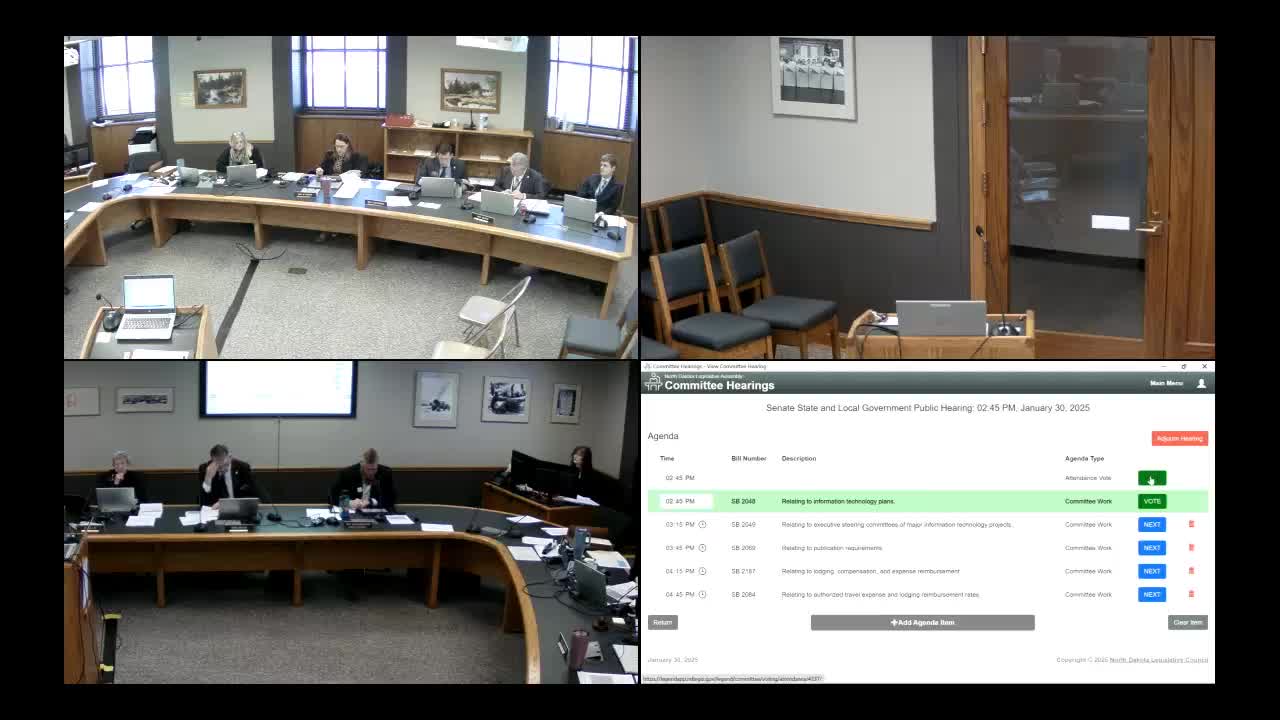Article not found
This article is no longer available. But don't worry—we've gathered other articles that discuss the same topic.
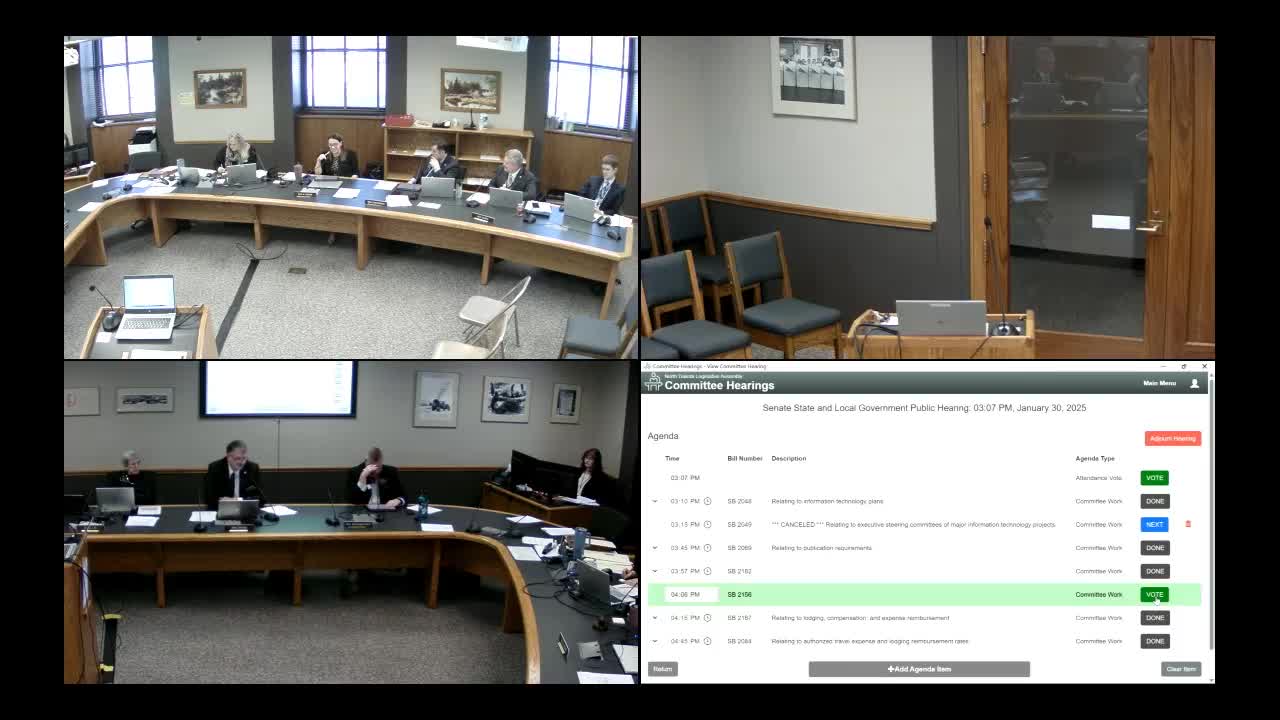
Committee votes do-not-pass on bill flagged as unconstitutional delegation of authority
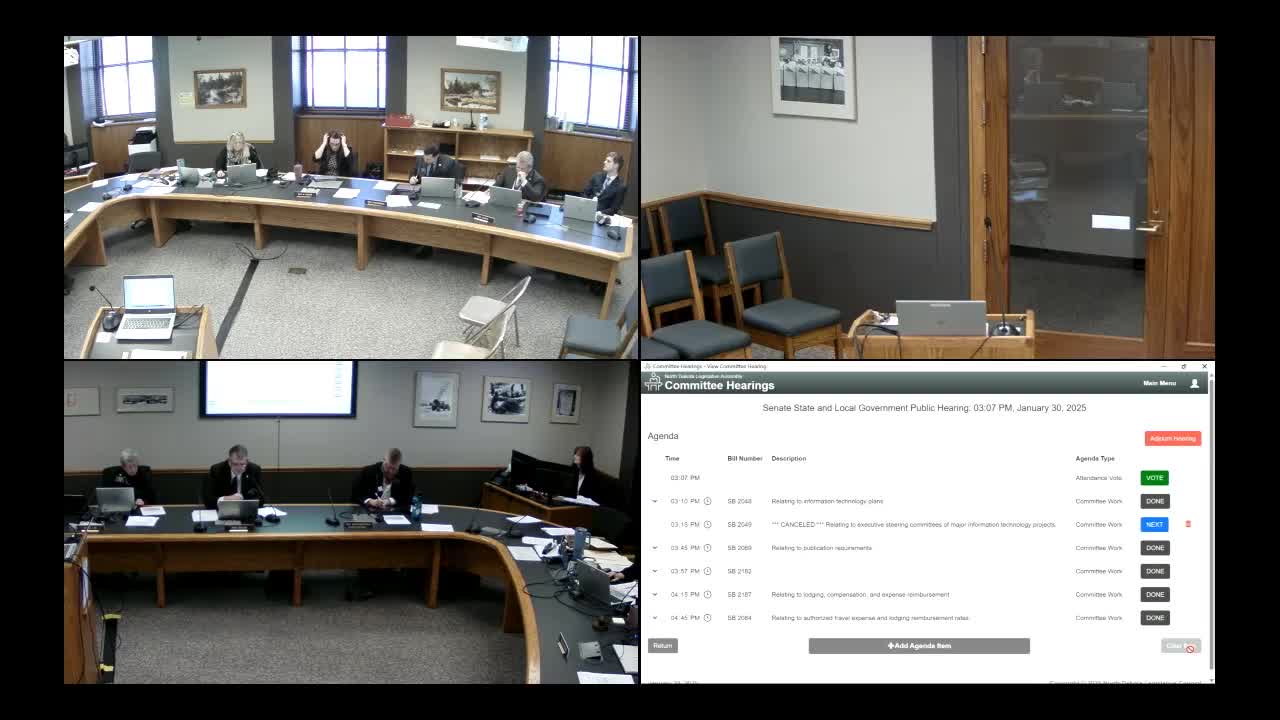
Committee debates campaign finance thresholds, filing cadence and fees; no vote taken
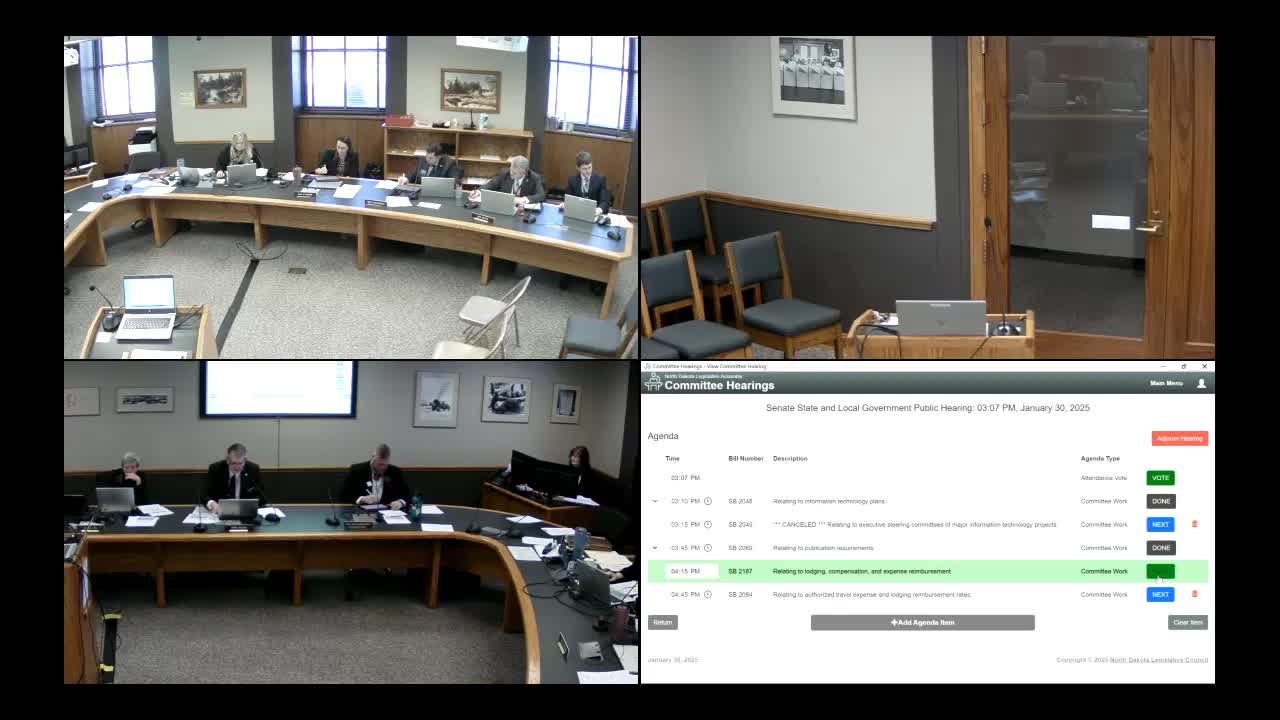
Committee adopts amendment to align state mileage and lodging rules with GSA rates; raises legislative monthly lodging to 75% of GSA
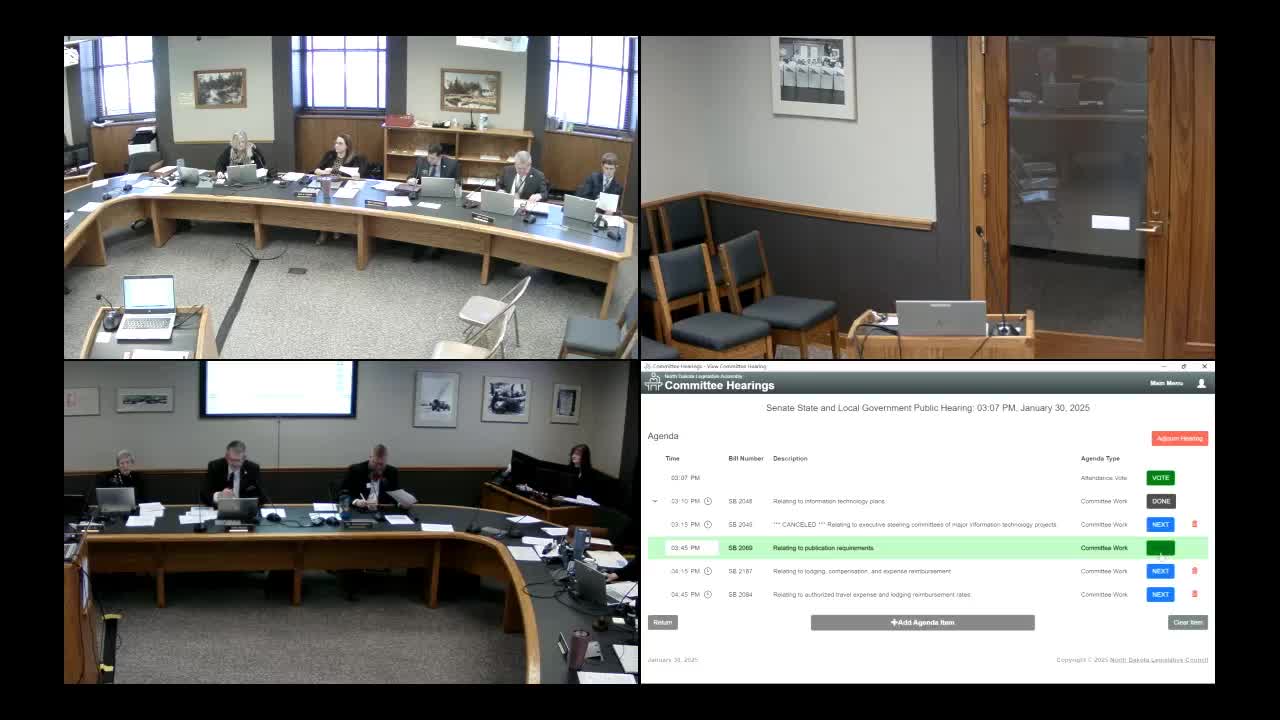
Committee approves amendment to let state agencies post legal notices on Secretary of State site; $150,000 set aside to rebuild site
